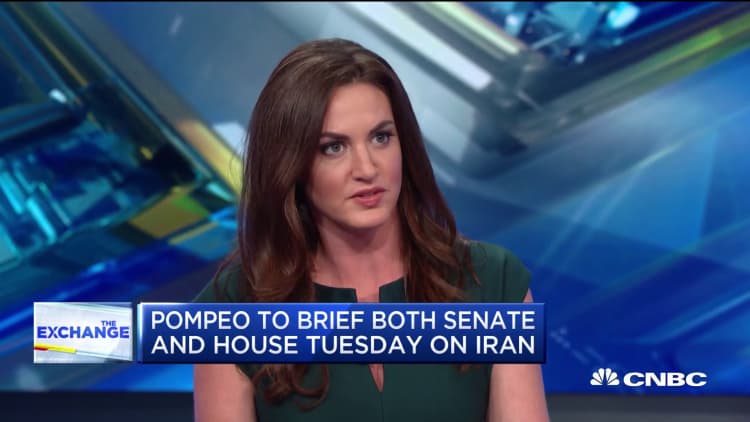Oil futures were little changed on Tuesday, supported by U.S.-Iran tensions and expectations of ongoing OPEC supply cuts but under pressure from concerns about a drawn-out trade war between Washington and Beijing.
"The two powerful countervailing forces in the market right now are the Iran tensions versus the deteriorating U.S.-China trade war situation," said John Kilduff, a partner at Again Capital in New York.
The trade war "really hits the Asian economies and the demand outlook, and this situation with Iran has the market on tenterhooks at the same time," Kilduff said.
Brent crude futures, the international benchmark for oil prices, rose 6 cents to $72.03 per barrel around 2:35 p.m. ET (1835 GMT). U.S. West Texas Intermediate crude futures settled 11 cents lower at $62.99 per barrel.
The prolonged tariff fight between the United States and China raised concerns about a global economic slowdown and dampened market sentiment.
Signs that Asian economies were already getting hit by the trade conflict helped to boost the U.S. dollar, making crude more expensive.
On Monday, U.S. President Donald Trump threatened Iran with "great force" if it attacked U.S. interests in the Middle East. Washington suspects that militia with ties to Iran organized a rocket attack in Iraq's capital Baghdad.
On Tuesday, Iran said it would resist U.S. pressure, declining further talks under current circumstances.
Iraq's oil minister said growing tension in the Middle East poses a challenge to the stability of global crude oil markets and said OPEC must pave the way for a "new agreement" to help stability and support prices. He did not elaborate.
Tensions have mounted during an already tight market as the OPEC, Russia and other producers have with held supply to support prices. Saudi Arabia has signaled its willingness to continue curbing output until the end of the year.

A meeting has been scheduled for June 25-26 to discuss the policy, but the group is now considering moving the event to July 3-4, according to OPEC sources on Monday
Also adding to market tightness was the closure of a major pipeline in Nigeria and supply disruptions from Russia.
The market will watch U.S. crude stockpiles reports on Tuesday afternoon from the American Petroleum Institute and Wednesday morning from the U.S Energy Information Administration.
Analysts in a Reuters poll said would likely rise by 5.4 million barrels in the week to May 10.

